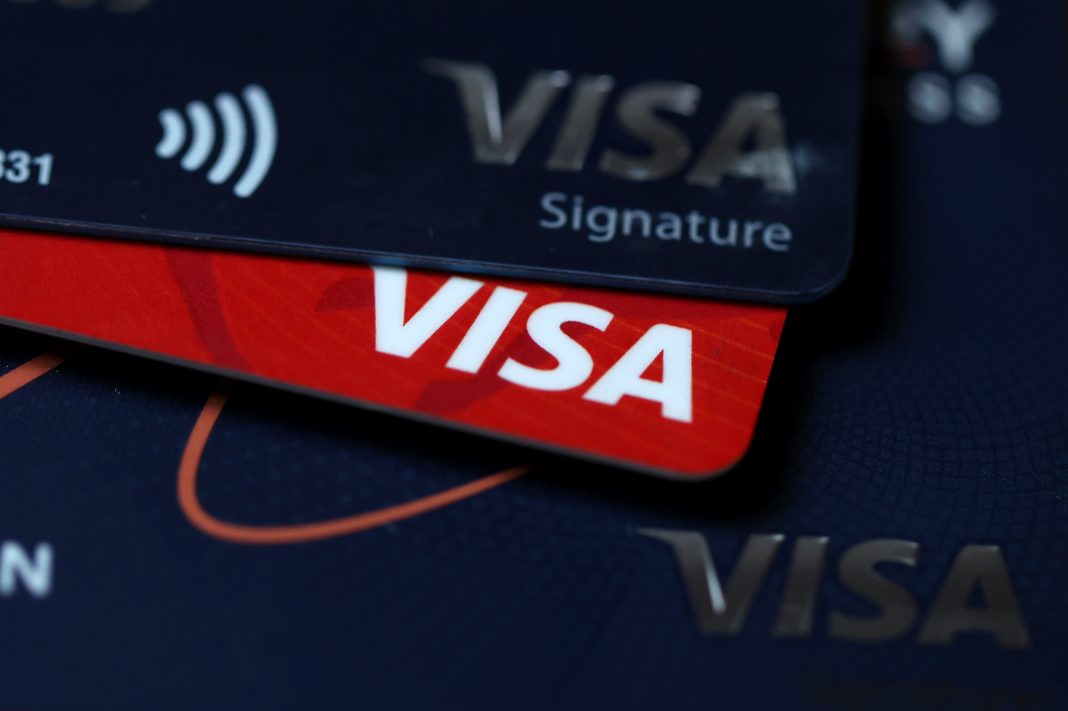In a significant legal maneuver that could reshape the landscape of payment processing in the United States, the Justice Department has initiated a civil antitrust lawsuit against Visa, the largest payments network globally. This move underscores a growing concern that Visa has engaged in practices that not only fortify its market dominance but also squeeze consumers and merchants alike through excessive fees.
According to Attorney General Merrick Garland, the lawsuit accuses Visa of fostering an illegal monopoly in the debit payments sector by instituting “exclusionary” agreements that stifle competition from emerging fintech companies. The DOJ argues that such practices have resulted in American consumers paying billions more in fees than they would in a competitive environment. “We allege that Visa has unlawfully amassed the power to extract fees that far exceed what it could charge in a competitive market,” Garland noted in a recent statement. He further illustrated the broader implications of Visa’s conduct, asserting that “merchants and banks pass along those costs to consumers, either by raising prices or reducing quality or service.”
The statistics are staggering. Visa processes over 60% of debit transactions in the U.S., and this dominance allows it to collect more than $7 billion annually in processing fees. This has effectively positioned Visa as a toll collector in the financial ecosystem, shuffling payments between merchants and consumers while reaping hefty profits. Combined with its smaller rival, MasterCard, the two companies boast a market capitalization nearing $1 trillion, a testament to their stronghold in an industry that has increasingly shifted from cash to card-based transactions.
However, this power has not gone unnoticed. Regulatory scrutiny has intensified in recent years, with the DOJ previously attempting to block Visa’s acquisition of fintech startup Plaid in 2020, a move that was later abandoned. This growing stance against monopolistic behaviors was further evidenced in March, when Visa and MasterCard struck a deal to limit their fees and allow merchants to pass on credit card costs to consumers—an agreement anticipated to save retailers around $30 billion over five years. Yet, a federal judge rejected this settlement, indicating that the networks could afford a “substantially greater” deal, reflecting the judiciary’s growing awareness of the need for reform in this sector.
The DOJ’s complaint outlines a pattern of behavior where Visa allegedly uses its vast resources to undermine competition. It states that Visa has engaged in a “deliberate and reinforcing course of conduct to cut off competition,” including penalizing merchants who attempt to route transactions through alternative networks. This level of control raises questions about the sustainability of fair competition in an industry that is crucial to everyday transactions.
The timing of this lawsuit is noteworthy, coinciding with a broader push from the Biden administration towards increased scrutiny of corporate practices. Agencies like the Federal Trade Commission and the Consumer Financial Protection Bureau have taken a stand against “junk fees” and other exploitative practices in various sectors, suggesting a holistic approach to consumer protection.
In a related development, Capital One’s recent acquisition of Discover Financial, valued at $35.3 billion, aims to bolster Discover’s position as a competitor to Visa and MasterCard. Capital One plans to transition its debit card transactions to Discover, potentially leveling the playing field in a market long dominated by the two giants.
As this unfolding story develops, it raises critical questions for consumers and merchants alike: What will the future of payment processing look like if Visa’s practices are curtailed? How might increased competition affect the fees we pay for using debit and credit cards? The answers could have profound implications for our financial interactions in an increasingly cashless society.
In conclusion, the legal action against Visa is not just about one company’s practices; it represents a pivotal moment in the fight for fair competition and consumer rights in the payments ecosystem. As regulatory bodies ramp up their efforts, the outcome of this lawsuit could set a precedent that reshapes the marketplace for years to come. For now, all eyes will be on the courtroom, where the stakes are high—not just for Visa but for every consumer who swipes a card.

